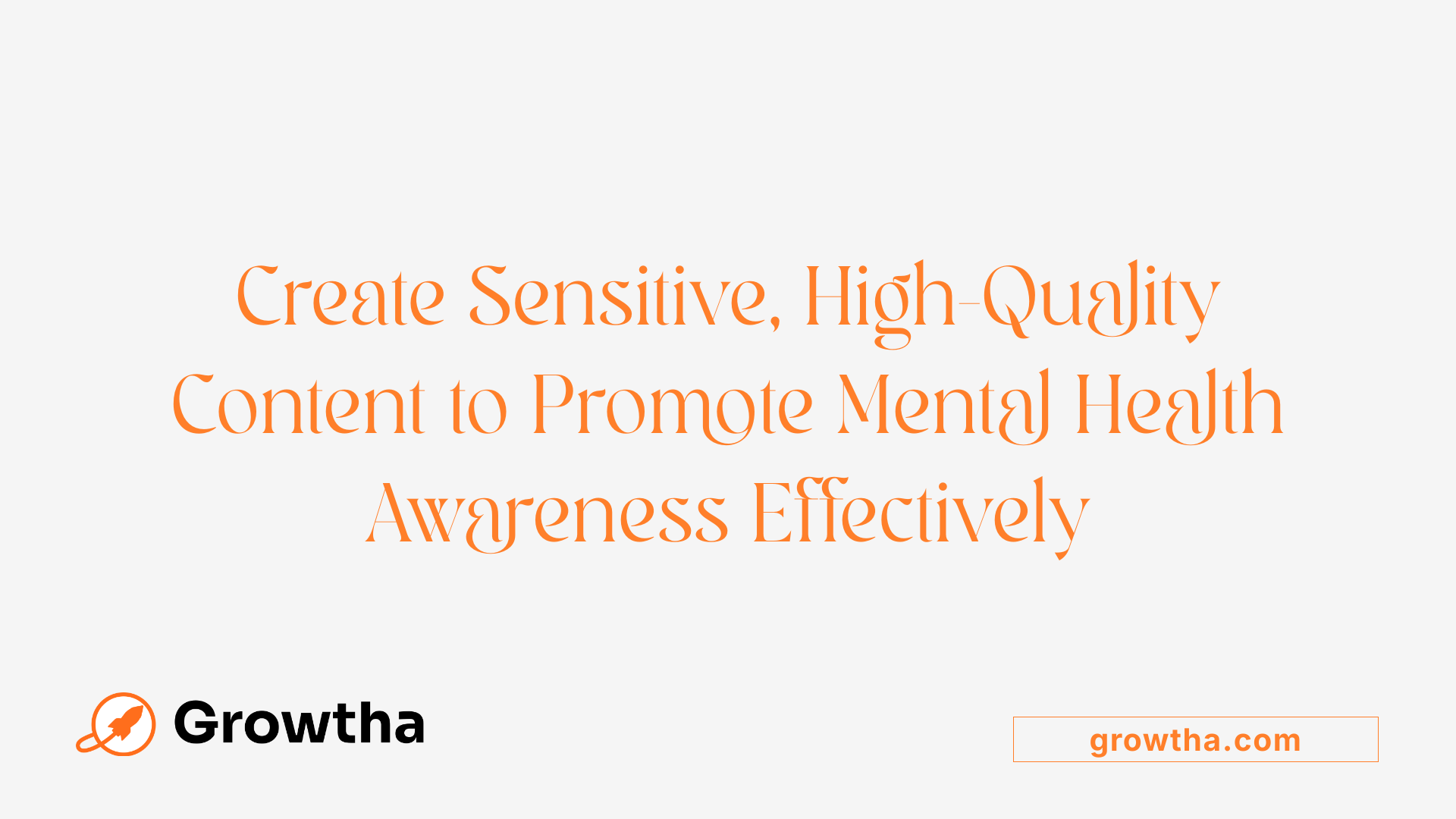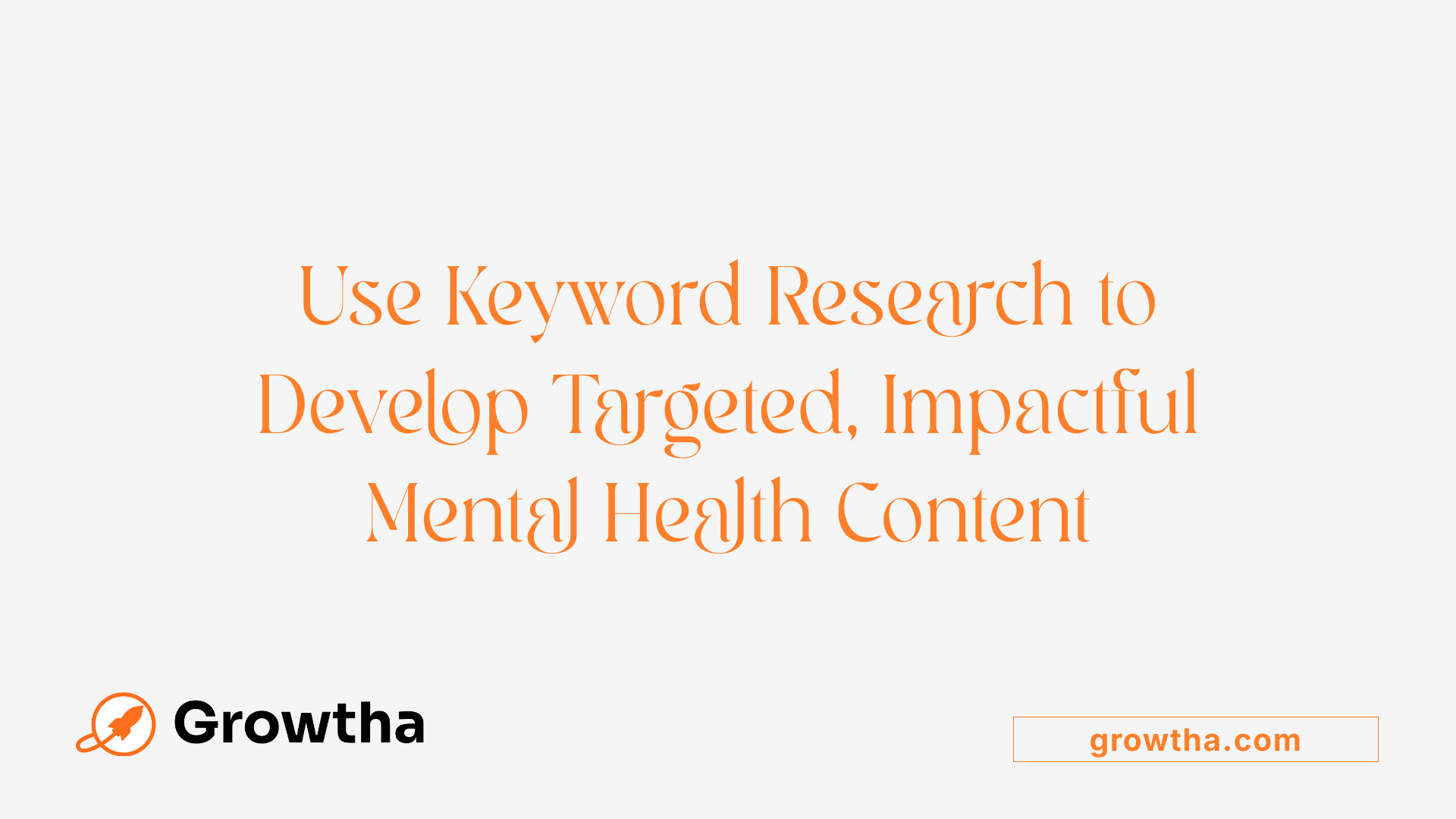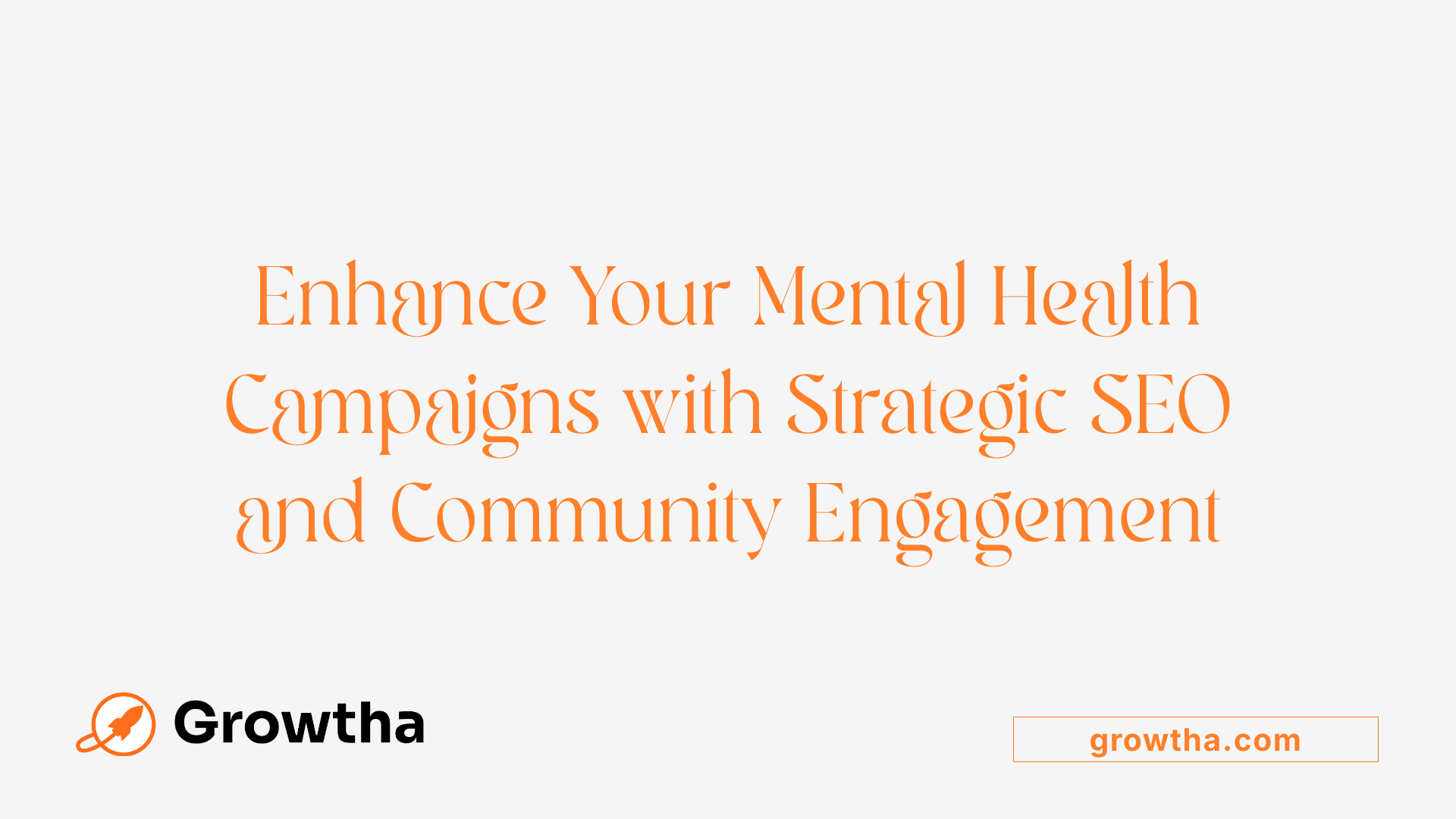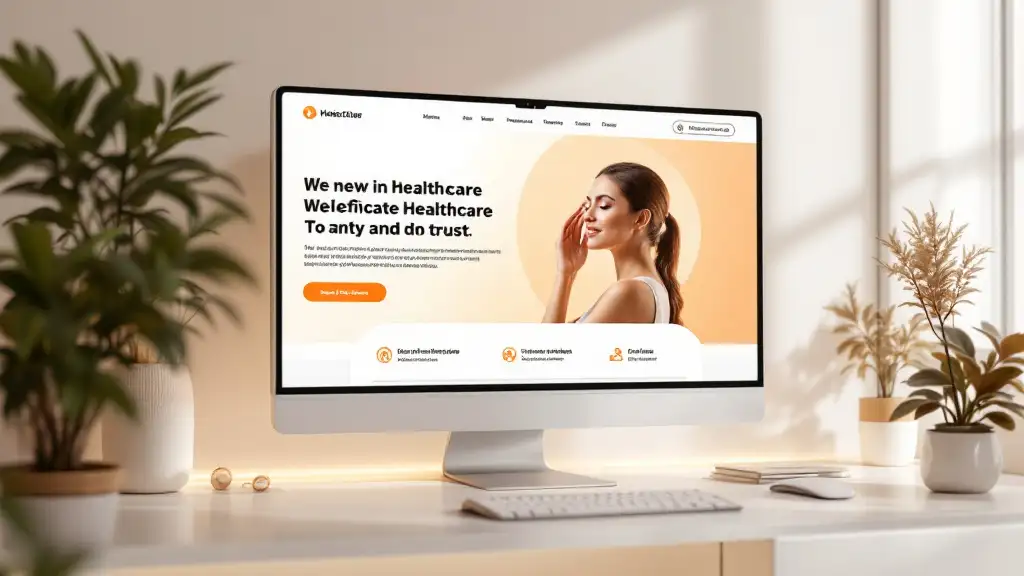SEO Strategies for Mental Health Awareness Campaigns
Boosting Visibility and Impact through Strategic SEO


SEO Strategies for Mental Health Awareness Campaigns
Harnessing SEO to Elevate Mental Health Campaigns
In the digitally driven landscape of mental health awareness, effective search engine optimization (SEO) plays a pivotal role in amplifying campaign reach, educating the public, and connecting those in need with vital resources. This comprehensive guide explores the best practices in SEO tailored for mental health initiatives, offering insights into keyword research, on-page and technical optimization, backlink building, and innovative strategies to maximize outreach and impact.
Core Principles of Content Creation and Optimization

What are best practices for content creation and optimization in mental health campaigns?
Effective content strategies are essential for promoting mental health awareness and attracting individuals seeking support. Creating high-quality, sensitive, and informative content tailored to the audience’s needs forms the foundation of successful campaigns.
Start by producing a variety of engaging materials such as blog posts, videos, infographics, and social media posts that address common mental health issues like stress management, therapy options, and stigma reduction. These materials should be empathetic, accurate, and accessible to foster trust and engagement.
Incorporating relevant keywords naturally within your content boosts search engine optimization (SEO). This means integrating keywords into titles, headers, and throughout the body of content without overstuffing, maintaining readability and readability. For instance, keywords like "mental health counseling near me" or "stress reduction tips" should be seamlessly woven into the text.
Using clear structured headings with proper hierarchy helps both users and search engines navigate the content easily. Well-optimized meta tags—such as title tags and meta descriptions—are crucial for improving visibility on search engine results pages (SERPs). Including descriptive alt texts for images ensures accessibility for all users and enhances image search rankings.
Developing a credible, user-friendly website is another fundamental aspect. The site should include detailed descriptions of services offered, biographies of mental health professionals, and operating hours to support transparency and trust. Local SEO tactics, like optimizing your Google Business Profile and local directory listings, help attract nearby patients.
Engaging your community through social media platforms like Facebook, Instagram, and LinkedIn allows you to reach targeted audiences and increase awareness. Managing online reviews actively, encouraging positive feedback, and responding professionally foster community trust and enhance reputation.
Performance monitoring is vital. Using analytics tools such as Google Analytics, Search Console, and social media insights provides data on website traffic, engagement, and conversion rates. This information helps refine content strategies, ensuring they meet audience needs effectively.
Partnering with experienced mental health marketing professionals can further optimize content strategies. Their expertise in SEO, content marketing, and digital outreach ensures campaigns are both impactful and sustainable.
In sum, blending high-quality, sensitive content creation with strategic SEO practices and active community engagement forms the backbone of effective mental health awareness campaigns. Regular analysis and refinement of these efforts maximize outreach and positively influence societal perceptions and access to mental health resources.
Implementing On-Page and Technical SEO for Visibility

How can technical and on-page SEO be implemented for mental health websites?
Enhancing a mental health website’s search engine visibility requires a strategic combination of technical and on-page SEO practices. Technical SEO begins with ensuring the website loads swiftly by optimizing images, minimizing code, and leveraging browser caching. It’s equally important that the site is mobile-responsive, adapting seamlessly to various device sizes, given the high mobile traffic in health-related searches.
Website security is paramount; implementing HTTPS not only protects patient data but also signals trustworthiness to search engines. Creating a clear, logical architecture with optimized URLs and a comprehensive sitemap helps search engines crawl and index the site efficiently. All these steps form the foundation for better search rankings.
On-page SEO focuses on creating high-quality, relevant content that naturally integrates targeted keywords. This includes craftily written meta titles and descriptions that entice clicks while accurately reflecting the page content. Proper header tag structure (H1, H2, H3) improves readability and SEO relevance.
Descriptive image alt texts ensure visual content contributes to your SEO efforts and improves accessibility. Incorporating schema markup — such as LocalBusiness or MedicalClinic types — helps search engines better understand your content, encouraging rich snippets in search results.
Internal linking is a crucial aspect of on-page SEO, guiding visitors and crawlers to related content, thereby increasing time on site and reducing bounce rates. Maintaining consistent Name, Address, Phone number (NAP) information across Google My Business and local directories enhances local SEO efforts.
Regular performance monitoring through tools like Google Analytics and Search Console enables ongoing adjustments. Review organic traffic, bounce rates, and keyword rankings to identify areas for improvement and update content to match evolving user search intent.
In summary, a successful SEO approach for mental health websites involves technical robustness and thoughtfully optimized on-page content. These measures work together to improve visibility, authority, and ultimately, patient engagement.
Staying Ahead with SEO Trends in Mental Health Sector
What are the latest SEO trends that mental health providers should be aware of?
In 2024, the landscape of search engine optimization continues to evolve, and staying current is essential for mental health centers aiming to attract new patients and maintain visibility. Prioritizing mobile-first strategies is crucial, as an increasing number of users search for mental health services via smartphones and tablets. Websites must be responsive, load quickly, and be easy to navigate on all device types.
Optimizing for voice search is another critical trend. Voice queries tend to be more conversational and longer, so creating content that addresses common questions in a natural tone—like FAQs—and focusing on long-tail keywords tailored to specific user intents can improve voice search rankings.
Building authority remains vital. Credential-backed, high-quality content that demonstrates expertise not only boosts SEO rankings but also enhances trust among prospective clients. This includes acquiring backlinks from reputable sources, such as recognized health organizations and industry blogs, further reinforcing your website’s credibility.
Incorporating multimedia formats—such as videos, infographics, and webinars—can significantly enrich user engagement. Videos explaining mental health treatment options or stress reduction techniques tend to increase time on page and conversions.
Regular performance analysis using tools like Google Analytics, Search Console, and SEMrush helps practitioners understand what strategies are effective. Keeping abreast of algorithm updates and adapting accordingly will ensure ongoing visibility.
Emerging AI technologies are also reshaping SEO. These tools can assist in content creation, keyword research, and even competitor analysis, enabling mental health providers to craft more targeted and effective campaigns.
In summary, the combination of fast, mobile-friendly websites, conversational content optimized for voice and long-tail keywords, authoritative and multimedia-rich content, ongoing analytics, and AI integration positions mental health centers to succeed in the digital space throughout 2024.
The Role of Keyword Research in Targeted Content Development

How can keyword research improve mental health content’s search engine ranking?
Keyword research plays a vital role in enhancing the visibility of mental health websites on search engines. By identifying the specific terms and phrases that people use when searching for mental health services, practitioners can tailor their content to match these queries.
Tools like Ahrefs, SEMrush, and Google Keyword Planner enable practitioners to analyze search volume, competition level, and relevance of various keywords. Incorporating both broad keywords, such as "mental health therapy," and long-tail keywords, like "affordable anxiety counseling near me," helps attract a wider and more targeted audience.
Strategically placing these keywords within titles, headers, meta descriptions, and service descriptions increases the search engine’s understanding of the page content. This leads to better ranking positions for relevant queries.
Addressing different stages of the patient journey with appropriate keywords further improves engagement. For instance, informational keywords like "what is depression" cater to initial research, while action-oriented keywords like "book therapist in Chicago" target users ready to make a decision.
Including location-specific keywords such as "near me," "Chicago mental health center," or "therapists in Brooklyn" helps practices appear prominently in local search results, which is crucial for attracting nearby patients.
Balancing relevance, search intent, and competition during keyword selection ensures that content remains targeted and attainable. Regularly updating the keyword list to reflect current trends or seasonal variations keeps the content competitive.
By continuously refining keyword strategies based on search trends and performance data, mental health providers can maximize their online presence and ensure that their content reaches those seeking help. This ongoing process helps capture high-intent traffic, enhances credibility, and ultimately increases patient inquiries and engagement.
Enhancing Outreach and Campaign Impact through SEO

What strategies can be used to increase online visibility and outreach for mental health initiatives?
Boosting the visibility and impact of mental health campaigns requires a dynamic and comprehensive SEO approach that combines several tactics. First, targeted social media campaigns play a crucial role. Using relevant hashtags like #MentalHealthAwareness and #SelfCare on platforms such as Instagram, Facebook, and TikTok helps reach niche audiences and encourages community engagement.
Engaging with the community through interactive content—such as online contests, live Q&As, and shared stories—further fosters social support and normalizes conversations about mental health. Collaborating with influential figures and local organizations amplifies messaging and credibility.
In addition, leveraging digital advertising methods like Pay-Per-Click (PPC) campaigns and sponsored posts on social media allows precise targeting towards specific demographics, enhancing visibility among those most likely to seek help.
Out-of-home advertising, such as wellness billboards placed in pharmacy waiting areas and community centers, complements online efforts by reaching audiences offline but connected to digital ecosystems.
Content marketing is vital for sustained engagement. Regularly publishing educational blogs, hosting webinars, and providing downloadable resources like self-help guides or mental health checklists helps establish authority and provides tangible value. These pieces should incorporate relevant keywords naturally to optimize search engine rankings.
Monitoring performance through analytics tools such as Google Analytics, SEMrush, or Ahrefs allows continuous measurement of campaign effectiveness. Tracking website traffic, social media engagement, and conversion rates helps identify what strategies are working and where adjustments are needed.
Ultimately, combining these SEO-driven tactics—social media outreach, targeted advertising, strategic partnerships, compelling content, and ongoing measurement—creates a synergistic effect that enhances the reach and influence of mental health initiatives. This integrated approach ensures these campaigns resonate with diverse audiences and foster meaningful social change.
| Strategy | Description | Goal |
|---|---|---|
| Social media campaigns with hashtags | Use trending hashtags to promote mental health awareness and community engagement. | To normalize mental health discussions online. |
| Digital advertising (PPC, sponsored) | Implement targeted ads on social platforms to reach specific populations. | Increase campaign visibility and engagement. |
| Partnering with organizations and influencers | Collaborate with trusted figures and organizations to broaden reach. | Build credibility and social proof. |
| Out-of-home wellness advertising | Use physical billboards and in-pharmacy displays to promote services. | Reach audiences in everyday environments. |
| Content marketing (blogs, webinars, resources) | Develop consistent, valuable content addressing mental health topics. | Educate and empower the community. |
| Performance monitoring and adjustments | Use analytics to refine campaign tactics continuously. | Optimize outreach and return on investment. |
Employing these integrated strategies ensures that mental health campaigns maintain relevance, reach wider audiences, and ultimately, foster a more informed and supportive community.
Maximizing Campaign Reach with Proven SEO Techniques

How does conducting comprehensive keyword research and analysis improve mental health campaigns?
Effective keyword research lays the foundation for any successful SEO strategy. By analyzing both broad and long-tail keywords related to mental health services, practitioners can identify what potential patients are searching for. Tools like Google Keyword Planner, Ahrefs, and SEMrush help assess search volume, competition, and relevance. This process uncovers specific terms and phrases, including location-based keywords such as "therapist near me" or "mental health support in [city]," which are crucial for local SEO.
Utilizing a large list of keywords for brainstorming broadens the reach, connecting with diverse needs and interests. Analyzing keyword performance over time also suggests content adjustments to improve visibility. Having a detailed understanding of keyword intent—whether informational (top funnel) or action-oriented (bottom funnel)—guides content creation and optimization.
What on-page and off-page SEO elements are essential for mental health center websites?
Optimizing on-site content is critical. Titles, meta descriptions, headers, and service descriptions should naturally incorporate relevant keywords, enhancing organic visibility without resorting to keyword stuffing. Descriptive image alt texts and internal linking improve site accessibility and crawlability.
Off-page SEO focuses on earning backlinks from reputable sources, boosting authority and credibility. Guest blogging on respected health and mental health blogs, collaborating with influencers, and submitting to specialized directories like Psychology Today or Healthgrades are effective strategies. High-quality backlinks from these sources send positive signals to search engines.
Technical SEO is equally vital. Ensuring the website loads quickly, is mobile-responsive, uses secure HTTPS protocols, and maintains a clear URL structure enhances user experience and search rankings.
How does building backlinks from reputable sources support SEO efforts?
Backlinks from trustworthy websites significantly boost search engine rankings by signaling the website’s authority and relevance. In the context of mental health, backlinks from mental health organizations, healthcare professionals, and well-known blogs foster trustworthiness.
Building backlinks involves guest posting, creating engaging and original content that others want to reference, and submitting to niche directories. Partnering with other professionals and organizations expands the network of credible links.
Regularly acquiring backlinks organically and ethically prevents penalties associated with spammy link schemes.
Why is implementing local SEO practices crucial for mental health practices?
Local SEO ensures that mental health centers show up in geographically relevant searches. Creating and optimizing Google My Business profiles with accurate information, images, and customer reviews is fundamental.
Using location-specific keywords in website content and service descriptions directs search engines to rank the practice for local searches.
Encouraging satisfied patients to leave positive reviews enhances the online reputation and visibility in local search results. Consistent NAP (Name, Address, Phone Number) information across listings maintains credibility.
How does creating high-quality, engaging content foster better campaign results?
Content marketing allows mental health providers to share their expertise and connect with their audience. Educational blog posts, videos, webinars, and downloadable resources address common concerns like stress, burnout, or digital pollution anxiety.
Content should be optimized for relevant keywords, addressing user intent at different stages of the patient journey—awareness, consideration, and decision.
Original, empathetic, and informative content builds authority and trust, encouraging visitors to take action, such as scheduling a session or contacting the practice.
How can analytics tools support ongoing SEO improvements?
Tools like Google Analytics and Google Search Console allow practitioners to monitor website traffic, user engagement, and conversion rates.
Tracking keyword rankings, bounce rates, and time on page identifies which content resonates most and highlights areas for improvement.
Analyzing campaign data helps refine keyword choices, content topics, and technical SEO strategies, ensuring continuous growth.
Why is collaboration with SEO professionals and organizations beneficial?
Partnering with experienced marketing agencies or SEO specialists ensures access to current best practices, advanced tools, and tailored strategies.
Collaborations with mental health organizations, community groups, and industry influencers amplify campaign reach and credibility.
Professionals can conduct comprehensive audits, perform competitor analysis, and develop inclusive campaigns aligned with legal and ethical standards.
| Aspect | Focus Area | Benefits | Example Activities |
|---|---|---|---|
| Keyword Research | Identifying relevant terms | Better targeting | Using SEMrush to find low-competition keywords |
| Content Optimization | Titles, headers, meta tags | Increased visibility | Creating blog posts on stress reduction with targeted keywords |
| Backlink Building | External links | Higher authority | Gaining backlinks from reputable mental health blogs |
| Local SEO | Location-based optimization | Nearby client acquisition | Optimizing Google My Business profile with local keywords |
| Content Marketing | Educational and engaging | Audience engagement | Producing videos on coping mechanisms |
| Analytics | Monitoring and adjusting | Continuous improvement | Tracking user behavior with Google Analytics |
What strategies are most effective for mental health campaign outreach?
The combination of comprehensive keyword research, on-page and off-page SEO, content marketing, and analytics creates a powerful approach to mental health outreach.
Prioritizing empathetic and authentic content makes campaigns resonate and encourages action.
Regularly reviewing and updating SEO strategies ensures campaigns adapt to changing algorithms and audience needs.
Partnerships and community involvement extend reach, fostering social change and reducing stigma.
Implementing these methods creates a sustainable, impactful digital presence that connects individuals with vital mental health resources.
Driving Impact with Thoughtful SEO Application
Implementing a strategic and comprehensive SEO plan is essential for mental health campaigns aiming to reach a broader audience, foster community engagement, and promote access to vital services. By integrating keyword research, on-page and technical optimization, backlink building, and current trends like mobile-first and voice search, mental health professionals can increase online visibility and ensure their message resonates widely. Regular monitoring and adaptation to emerging SEO practices allow campaigns to stay relevant and effective, ultimately supporting societal change and mental well-being on a broader scale.
References
- SEO Tips for Mental Health Treatment Centers
- Mental Health Keywords: Art of Selection for Impactful Campaigns
- Effective Mental Health Marketing Strategies for Practice Growth
- Mental Health Marketing: 2025's Top Strategies [+ Campaign ...
- Boosting Your Mental Health SEO Ranking: Tips and Tricks for 2024
- Mental Health Treatment Center SEO Campaign
- The Essential Role of SEO for Mental Health Professionals
- Mental & Behavioral Health Keywords: What Consumers Search For







